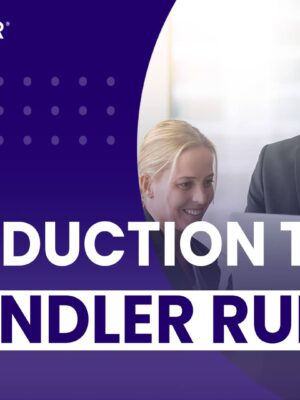How to Use Different Kinds of Questions to Improve Your Selling

As a professional salesperson, you’re a business consultant. That means you get paid to uncover the very best answers to the most important questions — until you understand the prospect’s situation well enough to either offer a viable solution or walk away. To do that, you must ask questions with a clear purpose, questions that move your sales process forward.
With that goal in mind, consider this brief overview of effective early-phase questioning strategies in four critical categories.
Rapport-Building Questions
Instead of starting a sales conversation with your favorite features and benefits of your product or service, which is what most salespeople do, consider starting off with engaging/connecting questions designed to help you build rapport with the other person.
If you do just a little homework before calling on your prospects, you will know something about them, their companies, their markets and their industry … and you can use that knowledge to frame your initial questions. With a few relevant and meaningful questions posed early on in the relationship, you will not only show interest and build a connection with your prospects, but you will also build credibility.
For example:
I understand that when you took over the division, your first initiative was to… How quickly were you able to accomplish that?
Has the migration of similar companies into the region changed the way you do business?
What impact, if any, have the state’s new tax incentives for capital investment had on your business?
There have been a lot of changes in your industry over the last 10 years … what’s been the biggest shift from your perspective?
“Ground Rules” Questions
It’s always important to set up a mutually agreeable structure for your discussions with prospects and customers. At Sandler, we call this structure an Up-Front Contract. Such a contract sets clear expectations about the purpose of the discussion, the prospect’s agenda, our agenda, the time available, and the expected outcome of the interaction. The following questions will help you to set or reconfirm such a contract in an initial meeting with a prospect.
Thanks for inviting me over today. Since we spoke on the phone, has anything changed?
So do we still have [45 minutes] to try to understand whether or not we might be a good fit?
Will you be comfortable with me asking you lots of questions about [insert two or three major topics]? You can ask me anything, too, of course; is that fair?
Let me ask: If I didn’t think that we could help you, would you be OK if I told you so? And will you be OK extending the same courtesy to me if you ever feel that we’re not the right fit for your needs?
When we get to the end of the meeting, if we’re both happy to move on to the next stage — and I have no idea yet what that might look like — let’s agree to scope it out and set a date in both of our calendars. That way we can make sure we both stay on target. Does that make sense?
(For more on Up-Front Contracts, see this video.)
Questions That Get the Ball Rolling
The following questions will help you to gain momentum and begin gathering information on the issues that matter most to the prospect.
Would it make sense to start by telling me the single thing that gives you the most concern about _______ right now?
How were you hoping I might be able to help?
Most of our new clients tell us that they’ve never bought this kind of thing before. Would it make sense for me to tell you a little bit about the types of companies we work with and the problems we solve, and our organization and how we do things … and then you can tell me about yours? Are you comfortable with that?
When we spoke, you mentioned that _______ is an issue for you. How long have you been thinking about/dealing with that?
Most of our time is spent helping businesses like yours. Can you tell me a little bit about how you go about dealing with _______ at the moment?
Questions That Clarify the Real Issue
At Sandler, we define “pain” as the emotional gap between where the person is right now and where he or she wants to be. If there is no pain, there is no sale! The following questions will help you to get a clearer picture on the prospect or customer’s current level of pain.
How serious would you say the problem is right now, today?
In your opinion, what’s the real problem?
Have you ever considered giving up on solving this issue?
If the situation didn’t improve, or even got worse, how concerned do you imagine you or the business would be?
What do you think this issue has cost the business over, say, the last six months? [Or whatever the appropriate timeframe is.]
Use Effective Questions to Position Yourself and Your Organization
Effective questioning strategies, like those you have just read, will give you a much clearer picture of what the other person feels, believes, wants to know, or understands. This is the secret to positioning yourself and your organization as a trusted resource: being genuinely curious about the other person’s world … qualifying the opportunity … and then and only then leveraging your organization’s experience and resources to create a customized solution for the problem you’ve uncovered.
Most salespeople don’t position themselves as this kind of expert. You can. How? The first step is to start using the kinds of questions I have just shared with you in the early phases of the business relationship. These questions will instantly set you apart from your competition. Take advantage of them!








